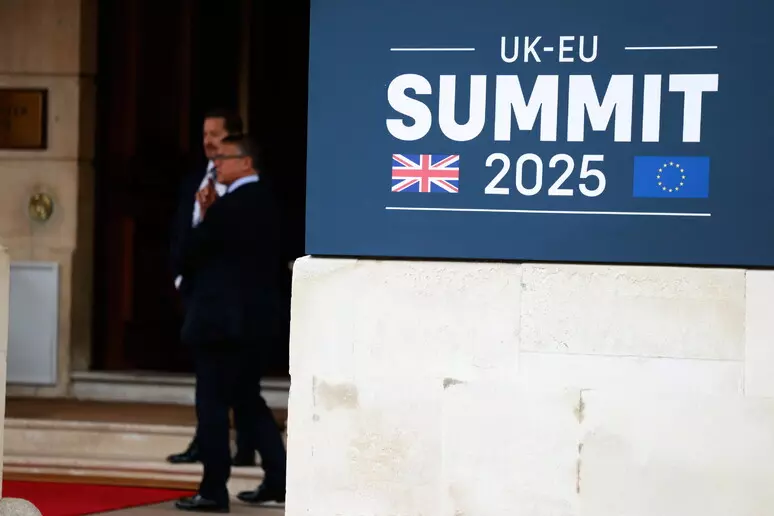The United Kingdom and the European Union signed a broad agreement early Monday aimed at resetting post-Brexit relations, with measures to streamline trade, deepen defense cooperation, and extend access to British waters for EU fishing fleets. British Prime Minister Keir Starmer and European Commission President Ursula von der Leyen signed the deal at a summit Downing Street described as “historic.”
The agreement covers a range of joint initiatives on trade, security, defense and environmental cooperation. However, no final deal was reached on youth mobility — one of the most anticipated items on the agenda.
Negotiators stopped short of a binding commitment on the issue of under-30 mobility, instead agreeing to a general statement of intent. The two sides pledged to “work towards a balanced youth experience scheme on terms to be mutually agreed,” which would allow young people to work, study, travel, or volunteer in each other’s territories “for a limited period of time.” The final text adds that any agreement should ensure that the “overall number of participants is acceptable to both sides.”
The UK also signaled openness to rejoining Erasmus, the EU’s student exchange program, which British universities and student groups have long lobbied to reenter following Brexit.
On defense and security, the agreement lays out a permanent partnership, though stops short of concrete commitments. Key areas flagged include continued support for Ukraine, cooperation on cybersecurity, the mobility of military personnel, and maritime and space security.
London and Brussels also agreed to expand cooperation on health security, including joint efforts on detecting and responding to future pandemics.
The UK will also begin talks to gain access to the EU’s facial image database — a step British officials say would streamline criminal identification across borders.
One of the most contentious issues — fishing rights — was resolved only in the final hours of talks. The UK agreed to extend EU access to British fishing waters for twelve more years, a significant concession compared to its initial offer of five years.
Border procedures were also addressed. British nationals will continue to use eGates at EU airports after the bloc’s new Entry/Exit System comes online in the coming months, with no legal barriers expected to arise under the new framework.
A new sanitary and phytosanitary (SPS) protocol was also finalized to simplify agri-food exports and ease border checks. Under the deal, certain routine inspections on animal and plant products will be eliminated altogether. The EU will also lift its ban on UK exports of sausages, minced meat and other chilled meats, in place since January 2021.
Meanwhile, UK steel exports will be shielded from new EU tariffs and regulatory restrictions. The British government estimates the arrangement will save the domestic steel industry roughly £25 million per year.
Environmental provisions in the agreement include linking the UK’s and EU’s Emissions Trading Systems — market mechanisms that cap industrial greenhouse gas emissions. The linkage is expected to exempt British companies from the EU’s incoming carbon border tax, potentially saving UK firms as much as £800 million when the levy takes effect in 2026.
Altogether, British officials estimate the SPS and emissions cooperation could generate an economic boost of £8.8 billion by 2040. It is the UK’s third major international deal this month, following agreements with the United States and India, and is seen in London as a step toward restoring investor confidence after years of post-Brexit uncertainty.
“This agreement marks a new phase in our relationship with Europe,” Starmer said, standing alongside von der Leyen and European Council President Antonio Costa. Von der Leyen added, “At a time of global instability, and when our continent faces the greatest threat it has for generations, we in Europe stick together.”
The agreement drew sharp criticism from opposition Conservatives and Brexit campaigner Nigel Farage, who denounced it as a betrayal of the original mandate to leave the EU.












